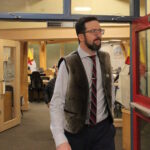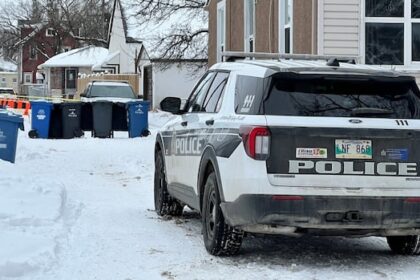Published 9:30 am Thursday, November 27, 2025 Prime Minister Mark Carney and Alberta Premier Danielle Smith have signed a memorandum of understanding to work toward building an oil pipeline to B.C.’s north coast. “At the core of the agreement, of course, is a priority to have a pipeline to Asia that’s going to make Canada stronger, more independent, more resilient, more sustainable,” Carney said on Thursday morning (Nov. 27) in Calgary. This deal was negotiated without B.C. Premier David Eby’s involvement, and without consulting coastal First Nations. There is a federal moratorium on large oil tanker traffic along the north coast of B.C., which would need to be amended or rescinded for a new pipeline to be built. Coastal First Nations want the moratorium kept in place. While the MOU does not specifically say where a pipeline would go, another one already exists to the south coast, the Trans Mountain, and the agreement commits to “an appropriate adjustment” to the tanker ban should the project be approved. The deal also commits to increasing the capacity of the Trans Mountain. Eby has consistently argued that there is no actual project proposal for a new pipeline, and he wants to avoid endangering First Nations’ support for existing projects. These include an electrical transmission line across northern B.C., critical mineral projects and liquefied natural gas export terminals. Eby is expected to address the media at 12:30 p.m. The MOU also commits the federal government and Alberta to not implementing an oil and gas emissions cap, to suspending clean energy regulations until new carbon pricing schemes are created, to developing a nuclear energy generation strategy and to boosting electrical generation for AI data centres. Alberta must apply with a pipeline project proposal to the federal Major Projects Office by July 1, 2026. In exchange for this, the deal sets deadlines for a slate of climate initiatives to ensure Alberta meets its climate obligations. This includes a reaffirmation of Alberta’s 2050 net-zero carbon commitment, with added benchmarks for the province to meet. It also commits Alberta to becoming the proponent of one or more “private sector constructed and financed pipelines” — suggesting the federal government will not subsidize the project — and to “collaborate” with B.C. to share the economic benefits. This is to involve immediate engagement in a trilateral discussion among the two provinces and the federal government, and to “meaningful consultation with Indigenous Peoples.” Smith said this deal is a “starting point grounded in good faith,” though she is not “blind to the fact” that Alberta has had the “rug pulled out from underneath them too many times to count over the past 10 years.”
Wednesday, 4 Mar 2026
Canada – The Illusion
Search
Have an existing account?
Sign In
© 2022 Foxiz News Network. Ruby Design Company. All Rights Reserved.
You May also Like
- More News:
- history
- Standing Bear Network
- John Gonzalez
- ᐊᔭᐦᑊ ayahp — It happened
- Creation
- Beneath the Water
- Olympic gold medal
- Jim Thorpe
- type O blood
- the bringer of life
- Raven
- Wás’agi
- NoiseCat
- 'Sugarcane'
- The rivers still sing
- ᑲᓂᐸᐏᐟ ᒪᐢᑿ
- ᐅᑳᐤ okâw — We remember
- ᐊᓂᓈᐯᐃᐧᐣ aninâpêwin — Truth
- This is what it means to be human.
- Nokoma











